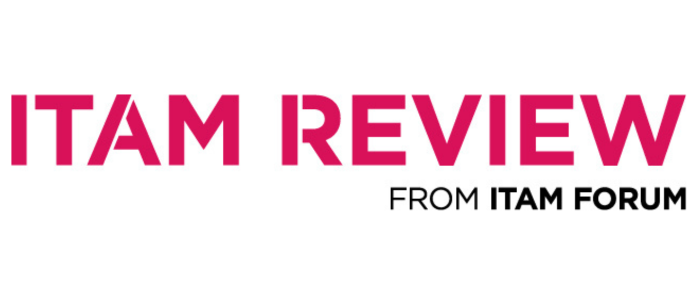Are Big Software Publishers Paying Lip Service to Anti-Piracy?

software publishers complaining about piracy - a charade?
Last month the Business Software Alliance (BSA) published their ‘Eighth Annual Global Software Piracy Study’.
The BSA reports that the commercial value of pirated software continues to rise and that piracy is growing fastest in ‘Emerging Economies’, those up and coming countries that are embracing technology with ever increasing pace.
If we put the dubious research methodologies aside, the major item missing from the report is the role of software publishers.
If a neighbourhood experiences a spate of burglaries, it’s not just a case of stepping up the police presence to catch burglars but also prevention; locking doors, closing windows, keeping an eye out. What are software publishers doing in the fight against piracy?
The contributing members of the BSA are obviously putting their hands in their pockets to help pay for this report, but what else are they proactively doing to prevent their software being pirated in the first place?
The BSA outlines a ‘Blueprint for Reducing Software Piracy’ within the report that solely focuses on the role of governments and end users.
End users and partners can engage with the BSA SAM Advantage program to increase their awareness of Software Asset Management best practices (which is very good by the way).
But what are the publishers doing to help themselves?
Adobe Licensing – Seven Opportunities Missed
For example, lets take a look at the opportunities for the software publisher Adobe to educate, warn and inform me of my licensing and usage rights as I buy their software:
- I buy a boxed product version of Adobe Elements from Amazon.com. At no point in the product description or listing data does it describe the license requirements or any restrictions of usage. i.e. The product you are buying is only to be installed on one machine.
- The box arrives. There is no obvious mention of licensing requirements or usage restrictions on the box.
- Inside the front cover, if I take out my magnifying glass, I can see in very small print that it states, “This product is offered subject to your acceptance of the license agreement included within the media and to limited warranty terms. See www.adobe.com/products/eulas”
- OK great, so if I look at the Adobe eula for Adobe Photoshop Elements I should be able to find a clear idea of what I have actually purchased and what I’m entitled to…. Nope.
- On page 43 of 236 of tedious legal text it states “Software License”, after which it quotes some legalese which still leaves me confused as to what I have bought. Especially the bit that says “You may install and use one copy of the Software in accordance with the documentation only on the Permitted Number of your compatible computers into which you enter a valid serial number.” You could be forgiven for thinking that this statement infers that you can install it on as many machines as you like as long as you enter the serial number we provided you. I don’t believe that’s me being facetious – there is genuinely nowhere on this long windy document where it states what I am entitled to use.
- Next step, I install my purchased software. At no point during the install does it offer a warning about licensing or attempt to educate me about my entitlement.
- After install I look in the ‘Help and About’ – nothing regarding licensing or my use of the software.
So here are at least seven opportunities in which Adobe could have educated, informed or warned me of licensing but chose not to bother.
The Piracy Business Model – Too Lucrative to Switch Off?
Adobe generated $1BN in revenues in the first quarter of 2011 and currently has a market capitalization of $15BN. You can’t help but think that if they wanted to do something about software piracy – they might have done it by now.
I believe there is one simple answer; piracy is a business model for generating new business.
In 2007 the author Paulo Coelho revealed that he was using file-sharing networks as a way to promote his books. “When he uploaded the Russian translation of “The Alchemist”, sales in Russia went from around a 1.000 books per year to 100.000 and then to a million and more” reports TNW.
In the past Bill Gates even revealed, no doubt to the horror of Microsoft and BSA marketing folks, that piracy was the software giants secret weapon in China. “ It’s easier for our software to compete with Linux when there’s piracy than when there’s not,” Bill Gates, Microsoft, 2007.
Brazil, Russia, India and China are all coming online in being fast technology adopters. What software company would want to lock themselves out of that land grab? What software company would want to lock down the use of pirated software and disrupt all of that great new business and free viral marketing? Most of all, software vendors fear that implementing anti-piracy measures will play into the hands of the competition.
Adobe and other BSA members may publicly pay lip service to anti-piracy measures but I believe that behind closed doors they prefer the status quo. Proven technology already exists to eliminate software piracy. An international standard exists, waiting to be fully embraced by the software publishers. But pirated software allows companies to engage new users, explore new markets and evangelize about their brand. Whether the lucrative piracy model can survive in a new world of no-nonsense App Stores, consumerized IT and instant internet gratification is another matter.
What do you think? Are the publishers addicted to the piracy business model?
Can’t find what you’re looking for?
More from ITAM News & Analysis
-
Does ITAM Need a Re-brand?
I recently spoke with Fulvio Inserra from The Mastermind Group (TMG) about whether ITAM needs a re-brand. My former colleague Ryan Stefani recently wrote a great whitepaper about the need for ITAM to evolve and embrace ... -
How will NIS2 Impact ITAM Teams?
In January 2023, in response to the large number of widely publicised cyberattacks, the European Union enacted a revised version of the 2016 Network and Information systems Directive (NIS). The revision – the NIS2 Directive – ... -
TCO Certified Announces New Sustainable IT Criteria
Global sustainable IT certification body TCO Certified has launched the latest edition of its criteria to certify IT products. Alongside the standard, it also revealed an ambitious ten-year roadmap, which, if successful, will see a return ...
